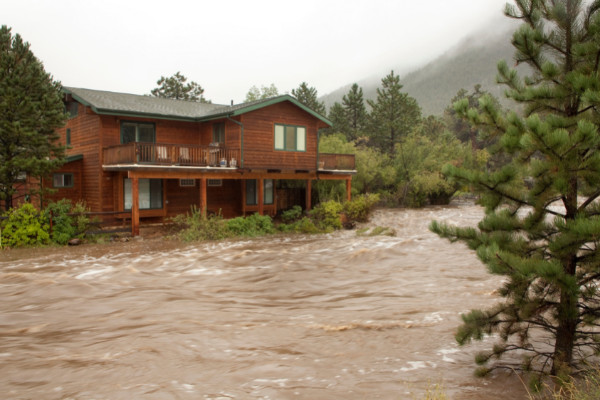No other force of nature can be as destructive as floods. Out of all the other calamities that Mother Nature can throw at you, floods are one of the most feared—and it’s for good reason too!
The damage of thunderstorms may be averted with the help of lightning rods, and wildfires can be avoided with the proper measures, but floods are unpredictable and may come from any direction. A heavy downpour of rain can trigger a flood, causing extensive damage to properties in a very quick time.
You may be someone who is concerned about your home and your personal belongings. It’s understandable, as these were all bought with your hard-earned money—and we know that you are willing to do anything in order to save your property from the damages caused by floodwater. Realistically, there may be nothing that you can do about your house, especially if it’s in the line of fire of the torrential waters. However, the same can’t always be said about your belongings, particularly if you happen to have multiple floors at home.
Here are just a few helpful tips in protecting your valuables from the flood (and in lessening its damage towards your home).
– Look Out for Breaking Weather Reports and Emergency Notifications
Prevention is always better than cure. You may not be able to stop heavy rain and floods from damaging your property, but at least you may prepare for it well enough to salvage what may still be useful after the storm passes!
At the first sign of trouble, do your best to transfer all of your lighter furniture and appliances to a higher floor. The flood may enter the first floor of your home, but if luck is on your side, it may not rise up towards the higher floors! Make sure that no electronic devices would be left on the lower floor as well.
– Prioritize When Evacuating
If worse comes to worst, you may need to evacuate. If the heavier stuff can’t be saved, at least take the lighter ones with you! Pack it all in your car; just make sure to save space for your loved ones.
You should probably round up all of your important documents, including your IDs, your passports, your contracts, your birth certificates, your tax returns, and other such documents, and put them in a briefcase. Take your laptops and cellphones as well!
– Turn Off Your Main Switches
When the flood hits, water is going to be the least of your problems. Turn off your main switch to avoid electrocution during the storm. Water tends to seep into your wall openings and sockets, so you can expect that they may reach your wirings as well!
There are wall socket covers that are being sold online. You may purchase a handful of them to cover all your electric sockets before the flood even hits.
– Close All Your Doors and Windows
This is not a solid solution—but it may buy you some time. It may not stop floodwater from entering your home, but it can slow down the current, well enough for you and your loved ones to get to a higher floor and bring whatever you can with you.
Conclusion
No force of nature can ever be avoided, but just because it’s unavoidable doesn’t mean that you can’t prepare for it. Your house and your belongings are your second-most priority—you and the lives of your family coming in at first—and any opportunity that you can get to salvage what you can is a positive step towards rebuilding when the flood dries up. Just be vigilant, don’t panic, and be alert enough to make the right decisions once the flood arrives.
We at Nationwide Restorations are all about giving families a chance to recover—a chance to bring everything back to normal. If water damage restoration in Calgary is what you seek, then look no further than our flood restoration service! Get in touch with us today to find out more!

